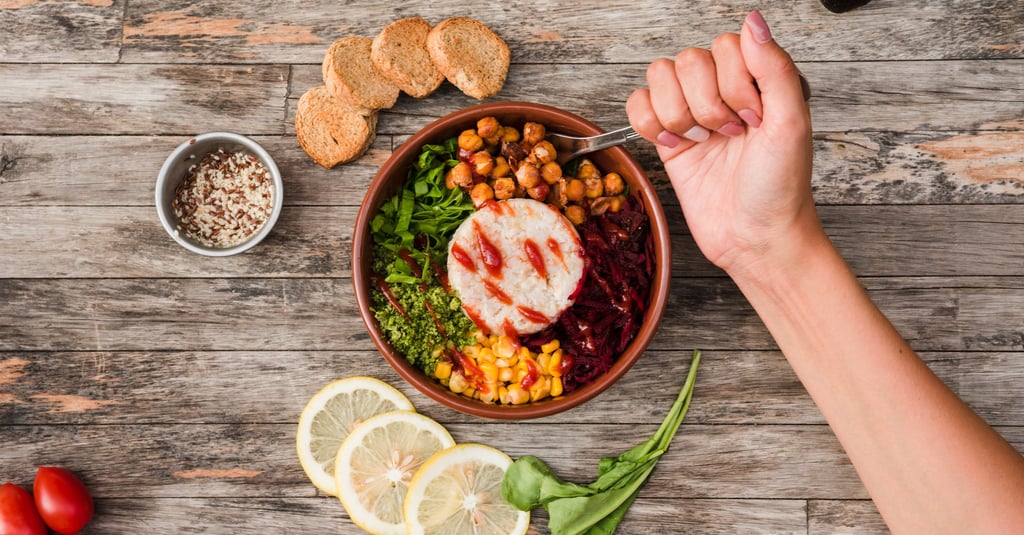Is it possible to be healthy without eating meat?
Find out if it’s possible to be healthy without meat, whether meat is healthy, how to replace proteins, the difference between vegan and vegetarian diets, and if stopping meat consumption leads to weight loss.
NUTRIÇÃO
Escolha Mast
9/14/20253 min read


Is it possible to be healthy without eating meat?
Nutrition is one of the most important pillars of health. Many people believe that meat is essential to keep the body nourished, but science shows that it is entirely possible to live well without it. More and more children, adults, and the elderly are choosing to reduce or eliminate meat consumption, whether for health, sustainability, or ethical reasons. But after all, does avoiding meat harm your health?
Is meat healthy or not?
Meat is a food rich in high-quality protein, heme iron (more easily absorbed by the body), vitamin B12, zinc, and other nutrients. On the other hand, excessive consumption is associated with health risks.
According to the World Health Organization (WHO), processed meats such as bacon, sausage, and ham are classified as carcinogenic (Group 1), meaning they increase the risk of cancer, particularly colorectal cancer. High consumption of unprocessed red meats may also be linked to cardiovascular disease and type 2 diabetes.
Therefore, meat can be part of a balanced diet, but ideally, it should be consumed in moderation and combined with plant-based foods rich in fiber, vitamins, and antioxidants.
Is it possible to live well without meat?
Yes, it is entirely possible to be healthy without eating meat. The Academy of Nutrition and Dietetics (U.S.) states that vegetarian and vegan diets, when well planned, are appropriate for all stages of life, including pregnancy, childhood, and older age.
Plant-based foods provide proteins, carbohydrates, fiber, vitamins, and minerals. The main concern is planning meals properly to avoid nutrient deficiencies, especially iron, vitamin B12, zinc, and omega-3. Fortunately, there are effective substitutes that ensure adequate intake of these nutrients.
How to replace meat?
Meat can be replaced with a variety of protein- and mineral-rich foods:
Legumes: beans, lentils, chickpeas, and peas are excellent sources of protein and iron.
Soy and its derivatives: tofu, tempeh, and textured soy protein are practical and nutritious alternatives.
Nuts and seeds: cashews, walnuts, chia, flaxseed, and sesame provide healthy fats and important minerals.
Whole grains: brown rice, oats, quinoa, and amaranth help complement the amino acid profile.
Dark leafy greens: broccoli, kale, and spinach offer iron, calcium, and antioxidants.
As for vitamin B12, the human body can only obtain it reliably from animal-derived foods or supplements. For this reason, vegans must supplement this vitamin.


Does avoiding meat lead to weight loss?
The answer is: it depends. Weight loss is linked to the energy balance between what you consume and what you burn. Vegetarian and vegan diets tend to be lower in calories and richer in fiber, which promotes satiety and may help with weight loss.
Studies show that people who follow a plant-based diet usually have a lower body mass index (BMI) compared to those who consume meat regularly. However, if a meat-free diet includes ultra-processed foods, fried foods, and an excess of refined carbohydrates, the outcome may be the opposite.
In other words, eliminating meat can support weight loss, but only if the diet is balanced.
Difference between vegetarian and vegan
The terms “vegetarian” and “vegan” are often confused, but there are important differences:
Vegetarian: excludes meat but may or may not consume animal-derived foods such as milk, eggs, and honey. Within this group, there are variations:
Ovo-lacto vegetarian: consumes eggs and dairy.
Lacto vegetarian: consumes dairy but not eggs.
Ovo vegetarian: consumes eggs but not dairy.
Strict vegetarian: avoids all meat and animal derivatives, but not necessarily for ethical reasons outside of food.
Vegan: in addition to not consuming meat, excludes all animal products from both diet and lifestyle. This includes milk, eggs, honey, leather, wool, cosmetics, and other items tested on animals.
Vegetarian and vegan diets and their health effects
A well-planned vegetarian diet can bring numerous health benefits:
Reduced risk of cardiovascular disease.
Better blood pressure control.
Lower chance of developing type 2 diabetes.
Prevention and support in the treatment of obesity.
In the case of a vegan diet, these benefits are also present, but extra care is needed with supplementation of vitamin B12 and, in some cases, vitamin D and omega-3.
Both eating patterns, when well organized, provide all the nutrients the human body needs. In addition, they encourage the consumption of fruits, vegetables, legumes, whole grains, and nuts—foods that promote long-term health.
Conclusion
Living without meat is possible and can be very healthy, as long as the diet is varied and rich in vegetables, legumes, and whole grains. Meat can indeed be a source of nutrients, but it is not irreplaceable. The key lies in balance, knowledge, and conscious food choices.
Therefore, if you are considering adopting a vegetarian or vegan diet, do so with proper planning. Seek nutritional guidance to adapt your meals to your individual needs. Your body will thank you, and so will your long-term health.
Take care of your nutrition starting today. Small lifestyle changes can transform your quality of life, boost your energy, and protect your health. Thank you for reading and dedicating time to your well-being. Keep following our content to learn more about health and nutrition. See you next time!
ESCOLHA MAST
Escolha Mast is an informative website that publishes blog posts and also promotes products that can help you in your quest for health and well-being.
CONTACT INFORMATION
Email: escolhamast@gmail.com
Phone: +55 068 99981-0331
© 2025. All rights reserved to Escolha Mast.
Choose to live well!
